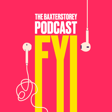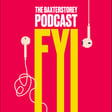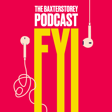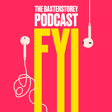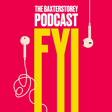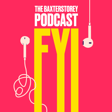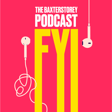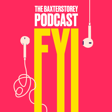
S2:EP11: Winter Wellbeing with Tom Oxley & WoW
Join us as we explore Winter Wellbeing with Tom Oxley, founder of Bamboo Mental Health and a leading expert in workplace mental health. Tom shares practical advice for managing winter’s unique challenges, including financial pressures, grief, and addiction, offering strategies to support ourselves and others during this demanding season.
Jo Woodward also joins us from WOW (Ways of Wellbeing), BaxterStorey's wellbeing ERG, who bravely shares her personal experiences of loss during the holidays, and Andy Aston, Head of Chef Partnerships & Communities, who highlights the power of connection and community for mental health. Whether spending the season alone or surrounded by family, this episode provides actionable insights for navigating winter with resilience and care.
Be sure to subscribe to our podcast to stay updated on future episodes, and check out the resources mentioned to access additional support.
Resources Mentioned:
- Alcohol Concern: Support and resources for managing alcohol use.
- A Christmas Against Poverty: Help for those experiencing financial struggles.
- Daddy Blackbird by Caroline Roodhouse: A powerful true story of a family navigating life after losing a loved one to suicide
- Resilient Grieving by Lucy Hone: A guide to navigating grief and building strength.
- Gabor Maté - In the Realm of Hungry Ghosts: A deep dive into addiction and its roots.
- The Easy Way to Stop Drinking by Allen Carr: A resource for overcoming alcohol addiction.
- Money Saving Expert: Supporting with your financials
- The Man Cave UK: A safe space for men to talk, seek support, and address mental health challenges.
- My Black Dog: A peer-to-peer support service offering help for those struggling with their mental health.
- The Burnt Chef Project: A movement tackling mental health stigma within the hospitality industry.
- Kelly’s Cause: Mental health first aid training to support the hospitality industry.
Other Support:
- Samaritans: Free, 24/7 support for anyone in distress. Call 116 123 or email jo@samaritans.org.
- CALM: Preventing male suicide with a helpline at 0800 58 58 58 and webchat available 5 PM–midnight.
- Papyrus UK: Suicide prevention for young people via HOPELINEUK. Call 0800 068 41 41, text 07860 039967, or email pat@papyrus-uk.org.
- Shout 85258: Free, 24/7 text support. Text SHOUT to 85258.
- Rethink Mental Illness: Resources, advice, and support on mental health challenges.
